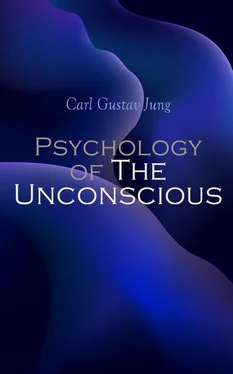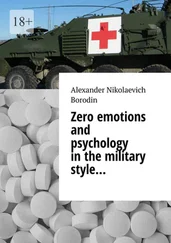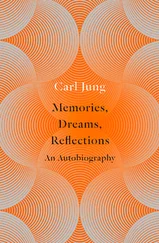It is very easy to understand that criticism and opposition should develop against a psychology so difficult of comprehension, and so disturbing to the ideas which have been held by humanity for ages; a psychology which furthermore requires a special technique as well as an observer trained to recognize and appreciate in psychologic phenomena a verification of the statement that there is no such thing as chance, and that every act and every expression has its own meaning, determined by the inner feelings and wishes of the individual.
It is not a simple matter to come out boldly and state that every individual is to a large extent the determiner of his own destiny, for only by poets and philosophers has this idea been put forth—not by science; and it is a brave act to make this statement with full consciousness of all its meaning, and to stand ready to prove it by scientific reasoning and procedure.
Developed entirely through empirical investigation and through an analysis of individual cases, Freudian psychology seems particularly to belong to that conception of Max Müller’s that “An empirical acquaintance with facts rises to a scientific knowledge of facts as soon as the mind discovers beneath the multiplicity of single productions the unity of an organic system.” [1]
Psychoanalysis is the name given to the method developed for reaching down into the hidden depths of the individual to bring to light the underlying motives and determinants of his symptoms and attitudes, and to reveal the unconscious tendencies which lie behind actions and reactions and which influence development and determine the relations of life itself. The result of digging down into the hidden psyche has been to produce a mass of material from below the threshold of consciousness, so astonishing and disturbing and out of relation with the previously held values, as to arouse in any one unfamiliar with the process the strongest antagonism and criticism.
Although originally studied only as a therapeutic method for the sick it was soon realized through an analysis of normal people how slight were the differences in the content of the unconscious of the sick and of the normal. The differences observed were seen to be rather in the reactions to life and to the conflicts produced by contending forces in the individual.
These conflicts, usually not fully perceived by the individual, and having to do with objectionable desires and wishes that are not in keeping with the conscious idea of self, produce marked effects which are expressed either in certain opinions, prejudices, attitudes of conduct, faulty actions, or in some definite pathologic symptom. As Dr. Jung says, he who remains healthy has to struggle with the same complexes that cause the neurotic to fall ill.
In a valuable book called “The Neighbor,” written by the late Professor N. Shaler of Harvard University, there occurs this very far-reaching statement: “It is hardly too much to say that all the important errors of conduct, all the burdens of men or of societies are caused by the inadequacies in the association of the primal animal emotions with those mental powers which have been so rapidly developed in mankind.”
This statement, reached by a process of reasoning and a method of thought and study entirely different from psychoanalysis, nevertheless so completely expresses in brief form the very basis of the postulates developed through psychoanalysis that I quote it here. Such a statement made in the course of a general examination of human relations does not arouse opposition nor seem to be so difficult of acceptance. It appears to be the individual application of these conceptions that has roused such bitter antagonism and violent denunciations.
Rightly understood and used, psychoanalysis may be compared to surgery, for psychoanalysis stands in the same relation to the personality as surgery does to the body, and they aim at parallel results.
It is well recognized that in the last analysis nature is the real physician, the healer of wounds; but prior to the development of our modern asepsis and surgical technique the healing produced by nature was most often of a very faulty and imperfect type—hideous scars, distorted and crippled limbs, with functions impaired or incapacitated, resulted from the wounds, or else nature was unable to cope with the hurt and the injured one succumbed.
Science has been steadily working for centuries with the aim of understanding nature and finding means to aid and co-operate with her so that healing could take place with the least possible loss of function or permanent injury to the individual. Marvelous results have rewarded these persistent efforts, as the brilliant achievements of surgery plainly indicate.
Meantime, however, little thought was given to the possibility of any scientific method being available to help man overcome the wounds and conflicts taking place in his soul, hurts which retarded his development and progress as a personality, and which frequently in the struggle resulted in physical pains and symptoms of the most varied character. That was left solely to religion and metaphysics. Now, however, this same assistance that surgery has given to the physical body, psychoanalysis attempts to give to the personality. That it cannot always succeed is as much to be expected, and more, than that surgery does not always succeed, for the analytic work requires much of the individual. No real result can be attained if he has not already developed a certain quality of character and intelligence which makes it possible for him to submit himself to a facing of his naked soul, and to the pain and suffering which this often entails. Here, as in no other relation in life, an absolute truth and an absolute honesty are the only basis of action, since deception of any kind deceives no one but the individual himself and acts as a boomerang, defeating his own aims.
Such deep searching and penetrating into the soul is not something to be undertaken lightly nor to be considered a trivial or simple matter, and the fact is that where a strong compulsion is lacking, such as sickness or a situation too difficult to meet, much courage is required to undertake it.
In order to understand this psychology which is pervading all realms of thought and seems destined to be a new psychological-philosophical system for the understanding and practical advancement of human life, it will be necessary to go somewhat into detail regarding its development and present status. For in this new direction lies its greatest value and its greatest danger.
The beginnings of this work were first published in 1895 in a book entitled “Studien über Hysterie,” and contained the joint investigations into hysteria of Dr. Breuer of Vienna and his pupil Dr. Sigmund Freud. The results of their investigations seemed to show that the various symptoms grouped under the title of hysteria were the result of emotionally colored reminiscences which, all unknown to the conscious waking self, were really actively expressing themselves through the surrogate form of symptoms and that these experiences, although forgotten by the patient, could be reproduced and the emotional content discharged.
Hypnosis was the means used to enable the physician to penetrate deeply into the forgotten memories, for it was found through hypnosis that these lost incidents and circumstances were not really lost at all but only dropped from consciousness, and were capable of being revived when given the proper stimuli. The astonishing part about it was that with the revival of these memories and their accompanying painful and disturbing emotions, the symptoms disappeared. This led naturally to the conclusion that these symptoms were dependent upon some emotional disturbance or psychic trauma which had been inadequately expressed, and that in order to cure the patient one merely had to establish the connection between the memory and the emotions which properly belonged to it, letting the emotion work itself out through a reproduction of the forgotten scene.
Читать дальше












